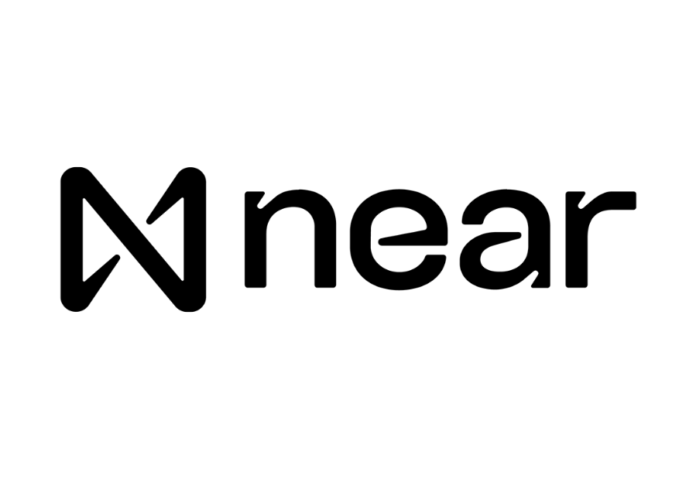The assessment revealed that NEAR Protocol was over 200,000 times more carbon efficient than Bitcoin, primarily due to the adoption of PoS over PoW.
NEAR Foundation, the non-profit that supports and funds ecosystem development on NEAR Protocol, a leading open-source and climate-neutral blockchain, has announced it signed up to the Ethereum Climate Platform. The move demonstrates the foundation’s commitment to sustainability in Web3 – and to working collaboratively with globally recognised leaders to minimise the environmental impact of Web3 ecosystem development.
The Ethereum Climate Alliance (ECA), convened by ConsenSys and climate tech firm Allinfra, was announced at COP27. ECA is a group of technology companies aligned around the mission to accelerate decarbonization and scale climate action. It achieves this by deploying the best-in-class technology and funding the development of digital environmental assets that will mitigate greenhouse gas emissions and deliver positive environmental and social impact for years to come.
Inspired by the Ethereum Merge, ECA is launching the Ethereum Climate Platform (ECP) – an initiative designed to collaboratively build a blockchain-based technology platform that will engage a decentralised community to accelerate climate finance at scale. The platform is committed to redress and counteract the historical Ethereum-based carbon footprint, dating back to the network’s launch in 2015, and accelerate the launch partners’ own decarbonization strategies.
The NEAR Foundation’s move to join the platform signals its intention to act as a sustainability model to the broader tech and business community. The collective includes a still-growing list of prominent stakeholders from the Web3 ecosystems, including including Laser Digital (Nomura), Microsoft, Polygon, The Climate Collective, Celo, Aave, Filecoin, and UPC Capital Ventures, as well as civil society leaders, all committed to mitigating human-driven climate change.
NEAR Foundation’s environmental stewardship is an integral part of its ethos. From its inception, NEAR has focused on a computational alternative to PoW. In this system, known as Proof-of-Stake (PoS), there are no miners. Instead, validators stake a given token amount to allow themselves to take part. PoS blockchains incentivise communities to own and control the network. Only then can they validate blocks and collect a block award. Functionally, NEAR’s PoS, called Nightshade, allows the platform to realise its ambition of being simple, scalable, and secure.
NEAR Foundation CEO, Marieke Flament, commented: “From the outset, we’ve been dedicated to bringing a billion users into a more open web. We recognised early on that sustainability would be a cornerstone of our approach to facilitating the widespread adoption of Web3 technologies. By aligning with the Ethereum Climate Platform and implementing our Blockchain Operating System (BOS), we’re not just enhancing the user experience — we’re creating a paradigm shift in the blockchain industry that respects and supports our global environment.”
Bill Kentrup, Executive Director of ECP added: “Having NEAR Foundation onboard this endeavour strengthens our joint mission significantly. Through persistent collective effort, we can bring to market climate finance tools that will accelate capital into climate-aligned assets and in turn, significantly mitigate greenhouse gases. As a fellow pioneer in the Web3 space, their participation is invaluable, and we’re sincerely excited about the potential this partnership holds for the future.”
On a social and ecological level, sharding allows NEAR Foundation to deliver on its carbon-neutral commitment. In 2021, NEAR Protocol was awarded the Climate Neutral Product Label, and its developers have been leading the charge in this era of extraordinary energy efficiency, creating an infrastructure that is lightning-fast, remarkably secure, and capable of accommodating millions of Web3 users.
NEAR Protocol has achieved this after enlisting South Pole, a globally recognised climate solutions provider based in Zurich, Switzerland, to evaluate NEAR’s carbon footprint, find ways to reduce it and counterbalance the remaining emissions with CO2 offsetting initiatives. The assessment revealed that NEAR Protocol was over 200,000 times more carbon efficient than Bitcoin, primarily due to the adoption of PoS over PoW.
Reforestation projects offset the minimal environmental impact of NEAR, thus rendering the NEAR Blockchain carbon neutral. Performing transactions on NEAR contributes to tree-planting initiatives in Colombia, Zimbabwe, and the United States via these carbon-offsetting projects.
NEAR Foundation’s mission since its inception has been to onboard 1 billion users to a more free, fair, and open web. The first step in the journey was to focus on building a best-in-class L1 blockchain that was easy to build on and use in a sustainable way. With the launch of the NEAR Blockchain Operating System – an industry first – anyone can create their own frontends and customise them to work with the blockchain of their choice.
Also read:How technology can streamline hiring process for companies?
Do Follow: CIO News LinkedIn Account | CIO News Facebook | CIO News Youtube | CIO News Twitter
About us:
CIO News, a proprietary of Mercadeo, produces award-winning content and resources for IT leaders across any industry through print articles and recorded video interviews on topics in the technology sector such as Digital Transformation, Artificial Intelligence (AI), Machine Learning (ML), Cloud, Robotics, Cyber-security, Data, Analytics, SOC, SASE, among other technology topics






